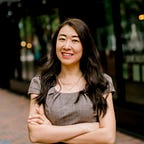Skin-lightening Products in Asia — Beauty Trend or Culture Shock? It is not Racism
Johnson & Johnson announced that it would no longer sell certain products that are advertised as dark-spot reducers as a response to the demonstration against racism that has been held across the United States. Product lines include Neutrogena Fine Fairness and Clean Fairness by Clean & Clear, which are only sold in Asia and the Middle East.
J&J and Unilever, along with other American personal care companies, have been criticized for selling products that advertise the skin-lightening effects. There is a petition that calls Unilever to stop selling a skin-lightening product marketed in India and the Middle East.
Dominique Apollon, from “Race Forward”, a racial justice advocacy organization, called the creams “a symptom of anti-blackness that occurs around the world.”
That’s quite a strong accusation. Overnight, many men and women in Asia and the Middle East, without realizing it, are labeled as anti-blackness racists. Simply because of their preference for skin products.
Let me clarify something first to avoid any confusion. The “lightening” in this article is not the same with “bleaching” to whiten the skin from black to white. If you google that word in the U.S., it will lead you to think you are bleaching your skin color like Michael Jackson.
I cannot speak for other countries, but I am familiar with Chinese, Japanese, and Korean who consider a fair and lighter skin color to be prettier. This may come as a “culture shock” to foreigners, considering people from the western world like to get tanned and darker.
When you visit these countries, you see people holding umbrellas or wearing a hat in the street to block the sun. Sometimes they wear face covers on the beach — even before the COVID-19 time. Women would not step out of the house without high-SPF sunscreens. They don’t want to get darker.
Data shows people around the world use skin-lightening and dark-spot reducer products extensively. According to a report, the global skin whitening market was valued at $4 billion USD in 2017 and is expected to reach $8.9 billion by 2024. “Dark spot reducer”, “lightening”, and “whitening” are the most searched keywords in personal care space. China accounts for 40% of sales in Asia, Japan 21%, and Korea 18%. This market will not slow down, the demand will continue to grow,- not just creams, cleansers, masks, but also nutrition products.
Why are they so obsessed with fair and lighter skin?
A simple explanation is that it is a beauty trend. Asians think fair and lighter skin makes Asian women (and sometimes men) look prettier, younger, and healthier. There is a Chinese old saying “A white complexion is powerful enough to hide seven flaws.” A fair skin equals high maintenance with nutrition and vitamins; while dark circles, dark spots, or sunburns show the opposite. It’s a perception, a culture, a beauty trend. Everyone deserves to feel beautiful and confident, and it’s their own choice what makes them feel that way.
Brand advertising, celebrities, and KOL (Key opinion leaders) are leading the beauty trend and influencing the public as well. Are companies promoting the trend to get consumers to buy in or they are adapting to the trend to capture the market opportunities? Probably both.
There is a theory that associates the lighter skin with a higher social-economic status. In the past, people with darker skin do outdoor physical labor or fieldwork, thus considered poorer. People with lighter skin are those who stay indoors, thus considered richer. It is just a theory. It does not mean people in these countries are discriminated against by how fair their skin color is. Some celebrities are considered as handsome as they get darker, especially male actors in China and Japan. No one judged them or discriminated against them. On the contrary, they got more popular.
Tracing back 5000 years of Chinese history, you can find portraits and poems to describe female beauty with fair lighter skin. It is a tradition in a certain way.
Having lived in both China and America, I see the opposite choices. There is nothing wrong with either choice. They are just different beauty trends and cultural preferences. Not everything is about race or racism. I do hope that Mr. Apollon understands the full story.
Johnson & Johnson took two whitening product lines off the shelf in Asia may be because these two lines don't do well at all. Chinese website Zhihu listed top 10 brands with most popular whitening products including SK-II (Japan), Laneige (Korea), Zeefine (China), Lancome (France), Clarins (France), Rohto CC (Japan), HABA (Japan), Olay (US), Kose (Japan), Kiehl’s (US). It is very obvious Japnese and Korean brands have been dominating the market.
I would not be surprised if J&J relaunch the product lines under a different name or new advertising strategy, such as “even tone”, “brightening”, “dark spot reducer” to avoid the sensitive words. But they are still skin-lightening products. They are not going to make any changes in those countries.
